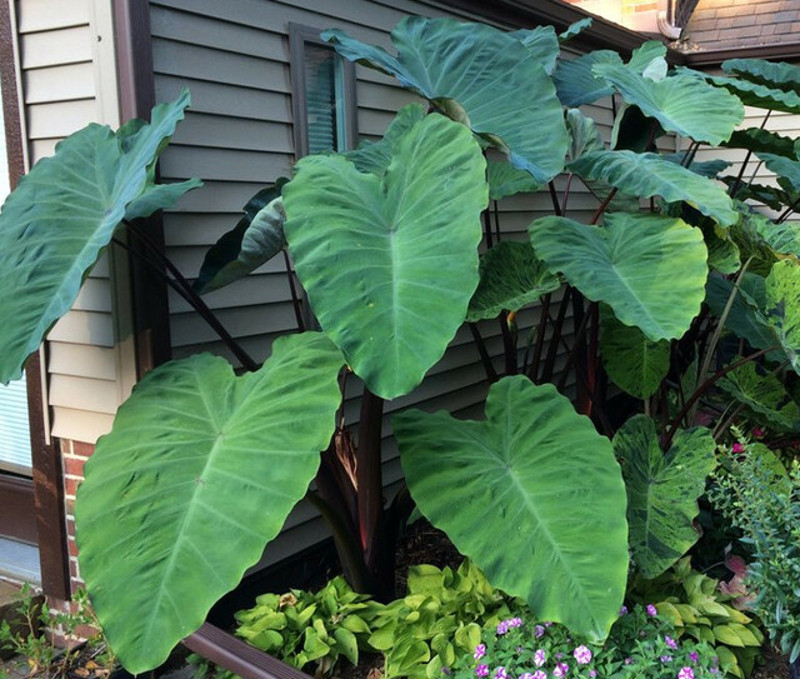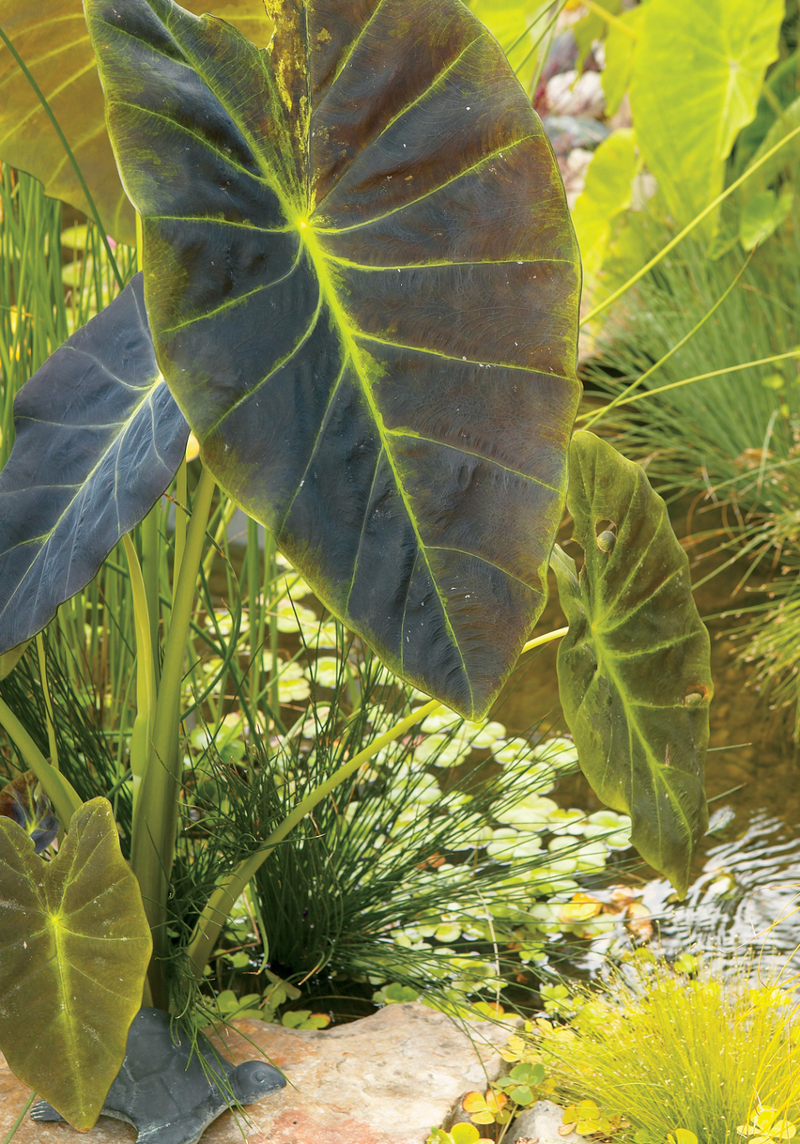In nature, plants are naturally fertilized as organic matter, like other plants break down around them. This detritus provides much-needed vitamins and minerals to help the plant grow. As naturally large plants, Elephant Ears are heavy feeders. Fertilizing your Elephant Ears supplies the nutrients it would receive in nature, allows the plant to maintain a healthy growth rate, and push out its trademark beautiful foliage.

How to Fertilize Elephant Ears
The soil matters when growing Elephant Ears. Soil rich in organic material, like compost, can help support plant growth. The ideal soil will also be slightly acidic. The soil can be amended with compost or manure when planting. Throughout the growing season, you can top dress the ground with compost or apply a fertilizer product. Water the plant when applying fertilizer because this will help the roots better absorb the nutrients, and it will also protect the plant from fertilizer burn.
Best Time To Fertilize Elephant Ears
If you are wondering when should I fertilize Elephant Ears, the answer is once a month during the spring, summer, and fall. As large plants, regular feedings will help the plant bulk up and support its large leaves. Plants do not need to be fertilized during the winter if they are not actively growing.

Best Fertilizer For Elephant Ears
Well-draining soil rich in organic matter, like compost or manure, are good options for Elephant Ears. A water-soluble 20-20-20 fertilizer is a good option that provides a good balance of nutrition. You can also use all-purpose Miracle Grow to feed Elephant Ears plants.
Elephant Ears Fertilizing Tips
- Use a rich soil amended with compost or manure or a 20-20-20 fertilizer mix
- Feed Elephant Ears once a month, starting in the spring and ending in the fall
- Water when applying fertilizer to protect against fertilizer burn
- Do not fertilize Elephant Ears when the plant is not actively growing
Warnings
-Always wear protective gloves and a face mask when handling chemical fertilizers.
-Closely follow all directions and storage guidelines that are on the fertilizer label.
 |
Author Alison Cotsonas - Published 12-13-2021 |
